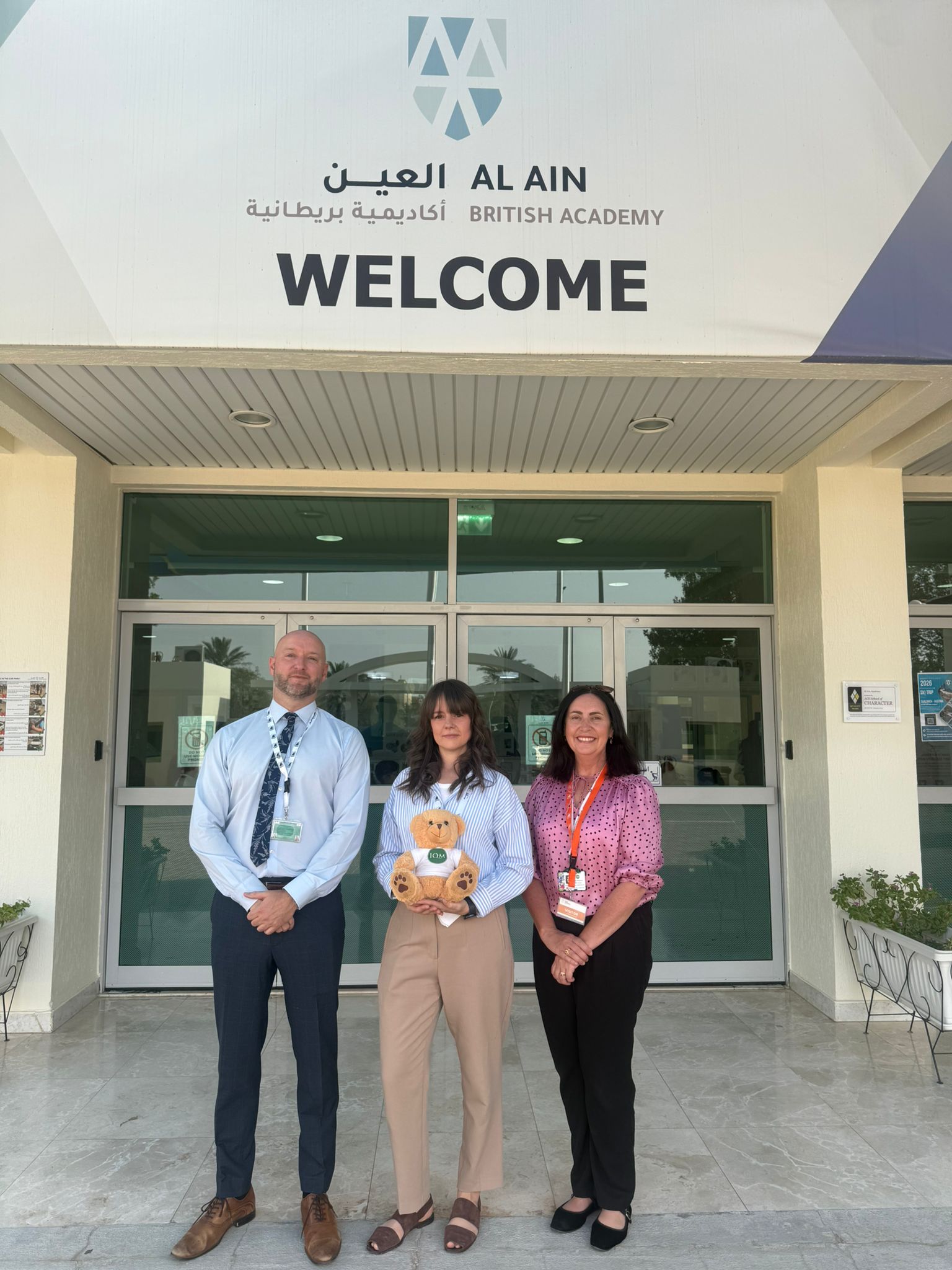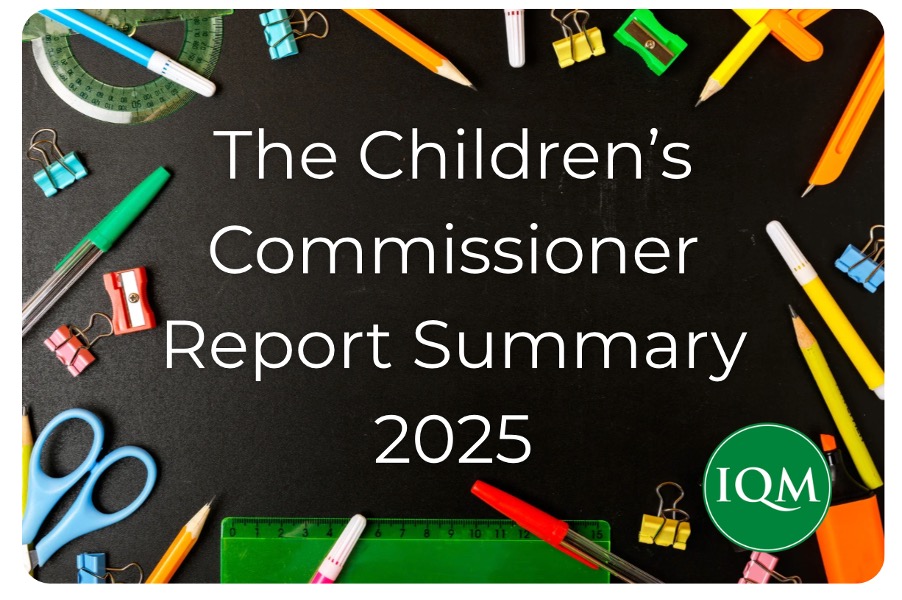Who is IQM?
IQM is the only national inclusion award in the UK. For over 20 years and in over 20 countires, schools, MATs and Local Authorities use the Inclusion Quality Mark to recognise exemplary inclusive practice.
Get in touch for your FREE school information pack today.
Ofsted 2025: What the New Framework Means for Inclusion and SEND
September 16, 2025

Big changes are coming from Ofsted in 2025, and if you’re a UK school leader, SENDCo, or inclusion lead, you’ll want to know what’s on the horizon.
Over the past fortnight, the government has published a raft of new documents and guidance. The latest changes to the EIF (Educational Inspection Framework), inspection toolkits and operating guides for inspections across all phases: early years, schools, independent schools, further education and skills, and initial teacher education.
At the heart of these reforms? A renewed focus on inclusion, ensuring that every learner, regardless of their background or needs, is supported to thrive.
In this blog, we’ll unpack the essentials from the Ofsted 2025 framework. We’ll explain what’s changing, what Ofsted will be looking for, and what this means for inclusion in your setting.
Let’s take a closer look.
Key updates in the 2025 framework
The 2025 framework moves away from a single overall grade and instead introduces report cards with clear judgments across inspection areas. Parents asked for more transparency, professionals asked for more nuance, and Ofsted has responded with the latest framework and toolkits (operating guides) that are setting-type specific.
Key headlines:
- Introduction of report cards with multiple grades instead of one overall judgement.
- New ‘exceptional’ grade to highlight best practice.
- Greater focus on inclusion, SEND, safeguarding, and well-being.
- Shorter inspection cycles where provision is not yet good, with quicker re-visits.
- Extra inspectors in schools to boost evidence-gathering and support leaders.
- Clearer inspection operating guidance aiming to reduce stress and uncertainty.
Inclusion and SEND are explicitly mentioned as central priorities – inspectors will be asking not just if learners are safe, but whether they are fully included and able to achieve their potential.

How will Ofsted inspect inclusion?
Across all phases, inclusion will be threaded through every part of the inspection.
Inspectors will:
- Look at how well disadvantaged and SEND learners are supported.
- Examine curriculum accessibility and whether adaptations are meaningful.
- Ask leaders about systems for early identification and support.
- Gather the views of learners, parents, and staff on inclusion.
- Pay close attention to behaviour and attitudes, especially around belonging and equity.
For schools in particular, this means SEND and inclusion leads will play a key role during inspections. Inspectors will want to see evidence of impact, not just paperwork;. They’ll want to see how inclusion is felt in the classroom, playground, and outcomes.

What it looks like for early years providers
In early years settings, inspectors will continue to prioritise safeguarding and welfare, but with an added lens on inclusion.
Key changes include:
- Greater scrutiny of how early years providers identify additional needs.
- Focus on inclusive curriculum planning, ensuring all children, including those with SEND, can access learning.
- Clear expectations that providers can explain how they adapt environments and teaching approaches.
This means early years leaders and teachers will need to show both policy and practice.
For example, can your staff explain how they adapt stories, play opportunities, or routines for children with speech and language needs?
State-schools and SEND provision
For state-funded schools, the changes are particularly significant, the inspectors are wanting to see inclusive practice in everyday school life.
The new Ofsted toolkit for schools outlines:
Stronger expectations around SEND: Inspectors will assess how effectively schools identify, plan, and support pupils with SEND.
Behaviour and attitudes: Schools must show how they foster an inclusive culture, where bullying and discrimination are not tolerated.
Curriculum inclusivity: Inspectors will test whether the curriculum meets the needs of all learners, including those who need additional support.
Pupil premium and disadvantaged learners: Schools will need to evidence the impact of their strategies, not just their intent.
Did you know? Our Evaluative Framework, used to assess if schools have met the Inclusive School Award criteria, is split into 8 core elements.
SENDCos and inclusion leads should also expect more involvement during inspection discussions. Inspectors will want to talk to you directly about provision, strategy, and outcomes.

Inclusion for independent schools
Independent schools will also see inclusion under sharper focus. According to their own inspection toolkit:
- Provision for SEND learners must be clearly planned, delivered, and monitored.
- Schools must show they are meeting the Independent School Standards around access and equality.
- Inspectors will evaluate how effectively independent schools prepare all learners for life in modern Britain, with inclusion forming part of this lens.
For smaller independent schools, this could mean being ready to show evidence of bespoke support and personalised planning.
Inclusion for FE and skills
In further education and skills providers (colleges and training providers), inspectors will:
- Look at how well colleges identify and support learners with SEND.
- Evaluate whether apprenticeships and vocational programmes are accessible to learners with different needs.
- Pay close attention to transition planning, especially for learners moving from school into FE.
Inclusion in FE settings isn’t just about SEND, but also about ensuring disadvantaged learners are supported into sustained employment or further study.

Preparing new teachers: Inclusion and ITE
For initial teacher education (ITE) providers, the message is clear: inclusion must be central to training, not a bolt-on that many teachers experienced during their own teacher training.
Inspectors will:
- Look at how trainees are prepared to teach pupils with SEND and from diverse backgrounds.
- Check that training includes practical strategies for inclusive classroom practice.
- Evaluate how well providers embed equity and diversity in their curriculum.
The aim here is to ensure that tomorrow’s teachers enter the profession confident and skilled in meeting the needs of every learner. Many ECTs (Early Career Teachers) are supported by a mentor who is in middle or senior leadership. Evaluating the current induction plans for middle and senior leaders is also necessary to improve inclusive practice for trainee teachers and those new to the profession.

What to expect from November 2025
The Ofsted 2025 framework marks an intentional shift towards (hopefully) more transparent, nuanced, and inclusive inspections.
For UK schools, the big takeaways are:
- Report cards replace single grades: To give a fuller picture of strengths and areas to improve.
- Inclusion and SEND are non-negotiable: They’ll be inspected in every phase.
- Practical evidence matters: Inspectors want to see the lived reality of inclusion, not just policies.
- Changes will come into effect from November 2025: So now is the time to prepare.
FAQs on the Ofsted 2025 framework: Inclusion
When will the new Ofsted framework start?
The new inspection arrangements will be in place from November 2025.
Will schools still get an overall grade?
No – Ofsted will issue report cards with multiple judgments instead of a single grade.
What’s new for SEND?
SEND provision is now a core focus in every phase. Inspectors will look closely at identification, support, and outcomes for SEND learners.
How should schools prepare?
Start by reviewing your inclusion strategies and impact. Make sure staff can explain how adaptations work in practice, and gather evidence of pupil outcomes and lived experiences.
Does this apply to early years, FE, and ITE too?
Yes – every phase has a revised inspection toolkit with a stronger focus on inclusion.
How IQM can help
At IQM, we know inclusion isn’t an add-on: It’s the foundation of great education.
These latest Ofsted changes put inclusion where it belongs: at the centre of all inspections. For school leaders and SENDCos, this is a chance to showcase the incredible work already happening, while identifying areas to grow.
We’ll continue to support schools, nurseries, colleges, and ITE providers on their journey towards creating environments where every learner feels they belong.
If you’d like to explore how the IQM Inclusive School Award can support your preparations, get in touch today.
More articles you’ll like:
The Children’s Commissioner Report 2025: What this means for mainstream inclusion
Starting secondary school with autism and ADHD: A Mum’s perspective
Other Posts

About IQM
The only national award for inclusion in the UK, IQM has been committed to recognising exemplary inclusive schools for over 20 years and in over 20 countries around the world. The three awards allow schools and organisations to dcelebrate their inclusive practice against nationally recognised framework.
Site Links
© 2025 Inclusion Quality Mark | website developed & cared for by digidoda


